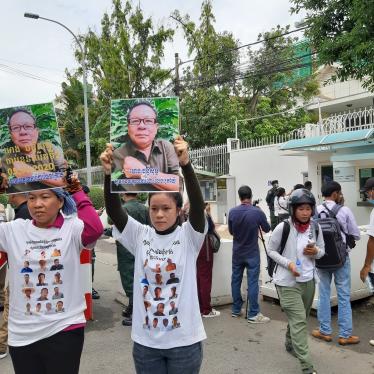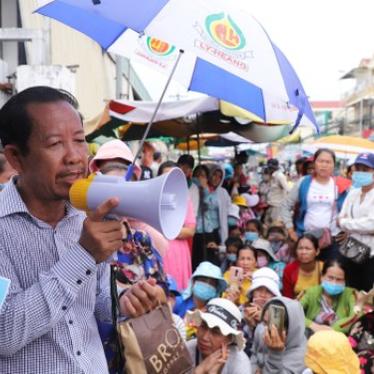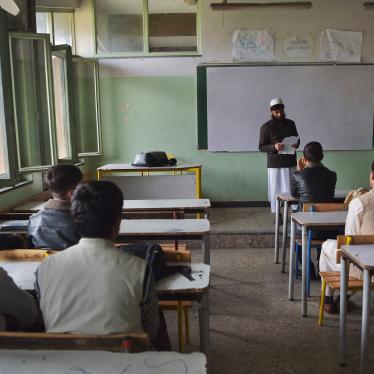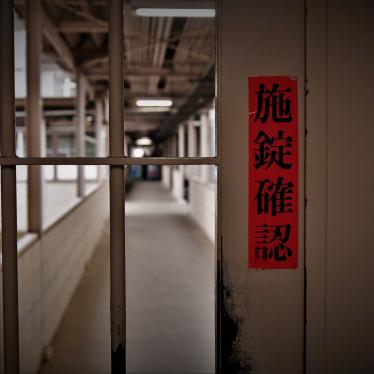As representatives of organizations working to promote women’s rights and gender equality in Cambodia, we wish to express our deep concern regarding numerous articles within the Draft Law on Public Order (DLPO), provisions of which violate women’s human rights. We therefore also endorse and echo the call made to the Royal Government of Cambodia (RGC) in a Joint Civil Society Statement on August 13, 2020, to scrap the draft law.
We acknowledge and commend the RGC for taking positive action to tackle gender inequality through a number of comprehensive policy initiatives, including the upcoming Third National Action Plan to prevent Violence Against Women (NAPVAW III), and the Fifth Strategic Plan for Gender Equality and the Empowerment of Women in Cambodia (Neary Rattanak V). However, we are disturbed by the DLPO’s potential to subject women to criminal sanctions for dress and behavior that allegedly violate arbitrary and discriminatory social norms related to women’s dress and conduct.
We wish to emphasize that the government cannot uphold its commitment to achieving gender equality on one hand, while demonizing and criminalizing women who they deem to be harming society by not conforming to arbitrary, conservative standards of dress and morality. Similarly, the RGC cannot tackle high rates of sexual violence and harassment without promoting women as being in control of their bodies and entitled to their own sexual autonomy, and without condemning and prosecuting perpetrators of all forms of sexual violence. Such recommendations were recently set out by the Convention for the Elimination of All Forms of Discrimination Against Women (CEDAW) Committee in their 2019 Concluding Observations, in particular paragraphs 11(e), 24(a); 25).
The proposed legislation undermines women’s capacity to enjoy their rights in two main ways:
Firstly, the DPLO restricts women’s right to freedom of expression and reinforces harmful gender stereotypes. The DLPO denies women the right to choose their own attire, alleging that “revealing” clothes have an “adverse effect” on “national tradition and dignity.” While the law does also seek to restrict men’s clothing choices, it is evident from Cambodia’s socio-legal context, and in light of the recent threats against and arrests of Cambodian women for dressing in revealing clothes while selling products online, that this law is likely to applied against women more than men. Such acts of discriminatory prosecution constitute clear violations of women’s right to freedom of expression enshrined in article 31 and 45 of Cambodia’s Constitution and articles 2 and 5 of the Convention on the Elimination of All Forms of Discrimination Against Women (CEDAW) that Cambodia has ratified. The DPLO would entrench in law sexist attitudes about women’s dress and conduct and give legal authority to abusive social policing of women’s bodies and choices and a broader culture of discriminatory gender norms. In a similar vein, the DLPO is also likely to be disproportionately applied against members of the LGTBQ community, in particular against performance artists such as drag queens, contemporary dancers and fashion models.
Secondly, the DLPO discriminates against at-risk groups in society, in particular women. The DPLO disproportionately criminalizes domestic, social and economic activities mainly conducted by Cambodian women. The workforce in the informal sector is largely made up of women, including sex workers and street vendors – professions that will be subjected to prohibitions and penalties. While the DLPO does not single out women and girls in this regard, the DLPO will de facto have more adverse and disproportionate impacts on women than men as well as their ability to enjoy a wide range of human rights as set out in international human rights law, including CEDAW and the International Covenant on Economic, Social and Cultural Rights and Law on the Protection and the Promotion of the Rights of Persons with Disabilities.
Adding to a Joint Statement signed by 79 civil society groups and released on August 13, 2020, we would like to highlight our gender-specific concerns regarding the DLPO:
Article 1 claims the law’s aim is to “ensure public order management by maintaining order, aesthetic value, sanitation, cleanliness of the environment, quietness, social stability, preservation of national tradition, and the dignity of citizens.” We are deeply concerned that the law seeks to restrict women’s freedoms on the basis of vague and subjective criteria such as “national tradition and dignity,” “aesthetic value,” “quietness,” and “social stability,” none of which are legitimate restrictions on human rights under international human rights law.
Articles 9 and 11, regulating competence of authorities and physical appearance, are likely to disproportionately affect sex workers and entertainment workers, and workers in the informal sector, particularly street vendors. These jobs are mostly filled by women who use and solicit in public spaces to earn an income. The restrictions by the DLPO would severely restrict women’s ability to and right to work. Moreover, the law would give local authorities the power to temporarily confiscate possessions as evidence of alleged offenses if the concerned person is unable to pay a fine. These articles also place the burden of maintaining order on individual citizens rather than requiring the government to fulfill their responsibility to provide enough accessible, safe, and good quality public toilets, trash bins and sufficient staff/contractors to clean public spaces and collect trash.
Article 16 has the potential to further harm survivors of domestic violence by making it more difficult for them to seek help and potentially criminalizing them. The provision lists speaking loudly or shouting as a problem of public order, and defines “public space” so broadly that it can include private homes if noises coming from inside can be heard from the outside. This creates the risk that authorities could wrongfully categorize calls for help, or shouts against abuse, as a public order issue instead of domestic violence under the Law on the Prevention of Domestic Violence and Protection of Victims. This could also potentially harm women experiencing violence and seeking help because police could claim legal grounds to punish them for breaking the DLPO, without addressing the violence they are facing.
Article 20 bans “entering into other’s houses, buildings, public and private institutions wearing facial masks or other ways to hide his or her identity.” This provision violates the rights of women who wear niqab as part of their observation of religious beliefs, while also posing health risks during a pandemic such as Covid-19.
Article 25 not only discriminates against those with mental disabilities, but would also disproportionately impact women, who in Cambodia are usually responsible for providing primary care to persons living with disabilities, by requiring them to prevent people with mental health conditions from walking freely.
Article 29 could affect women and children who need to live on-site in the construction areas if the separate law on construction management fails to properly consider the housing needs of women and children at the construction site.
Article 36 prohibits women from wearing clothes that are “too short” or “too revealing.” This provision violates women’s freedom of expression, undermines personal autonomy, and exacerbates discrimination against women who already face gender stereotypes and entrenched societal norms. The RGC has an obligation to respect, protect and ensure every individual’s right to express their identity, and must create an environment in which every person can make such choices about their clothing free of coercion. State interpretations of religion, culture or tradition cannot justify imposing rules about dress on those who choose to dress differently, be it offline or online. Women in Cambodia have frequently been subjected to threats and imprisonment for their choice of clothing. For example, harassment and rape are often blamed on a survivor having ‘provoked’ the perpetrator through her clothing or conduct, and there is little focus on punishing perpetrators of street harassment or sexual violence against women and girls. Article 36 can be used to harmfully criminalize survivors of sexual violence instead of taking meaningful steps to prevent gender-based violence and investigate and punish perpetrators. The DLPO also can perpetuate misunderstandings about the root causes of violence against women and girls in Cambodia. Moreover, article 36 is not necessary because Cambodia’s criminal code already penalizes “public indecency” (article 249). Finally, article 36 fails to define subjective terms contained in the draft, thus opening the door to unequal enforcement and potential law enforcement corruption.
Article 37 restricts freedom of expression – both online and offline – and expands the power of authorities to control social media communications of cis- and transgender women, whom authorities have already punished for online selling based on allegations of having violated arbitrary norms of sexuality.
In concluding this statement, we urge the RGC to uphold all of its international human rights treaty obligations under international human rights law. Article 5 of the CEDAW requires Cambodia to take all appropriate measures to “modify the social and cultural patterns of conduct men and women, with a view to achieving the elimination of prejudices and customary and all other practices which are based on the idea of the inferiority or the superiority of either of the sexes or on stereotyped roles for women and men.” We call upon the RGC to implement the CEDAW Committee’s 2019 Concluding Observations, including in particular paragraphs 11C, 24(a) and 25, which, among others, which requires the government to “systematically assess the impact of measures adopted to combat gender-based violence against women and girls, and continue to explore and adopt innovative approaches to address the root causes of such violence.” Moreover, in its Concluding Observations, Paragraph 9(b), the CEDAW Committee recommended that RGC “systematically undertake gender impact assessments when adopting or revising laws, and ensure that legislative changes help to promote and protect the rights of women.” The current draft language of the DLPO indicates that the Cambodian government has so far failed to conduct such an assessment of the DLPO’s likely negative impact on women, and the degradation and endangerment of the rights of women, contrary to Cambodia’s obligations under the CEDAW.
We therefore call on the Cambodian government to immediately discard the DLPO. The government should instead make it an urgent priority to address the forms of gender discrimination it has identified—including gender-based violence and discrimination in education, economic, social and political participation—through legislative reforms and policy change.
This joint statement is endorsed by:
- ActionAid Cambodia
- Advocacy and Policy Institute (API)
- Alliance for Conflict Transformation (ACT)
- Amnesty International (AI)
- Association of Domestic Workers (ADW)
- Association to Support Vulnerable Women (ASVW)
- Banteay Srei (BS)
- Building Community Voices
- Cambodian Center for Independent Media (CCIM)
- Cambodian Center for the Protection of Children's Rights (CCPCR)
- Child Rights Coalition Cambodia (CRC-Cambodia)
- Cambodian Youth Network Association (CYN)
- Cambodian Women's Crisis Center (CWCC)
- Cambodia Food Service Workers Federation (CFSWF)
- Cambodian Labour Confederation (CLC)
- CamASEAN Youth's Future (CamASEAN)
- Cambodia Center for Human Rights (CCHR)
- Children and Women Development Center In Cambodia (CWDCC)
- Committee for Free and Fair Elections in Cambodia (COMFREL)
- Fundasaun Alola
- Gender and Development for Cambodia (GADC)
- Human Rights Watch (HRW)
- Independent Democracy of Informal Economy Association
- International Women’s Development Agency (IWDA)
- Khmer Kampuchea Krom for Human Rights and Development Association (KKKHRDA)
- Klahaan Organisation
- Lady Savings Group (LSG)
- Legal Support for Women and Children (LSCW)
- Minority Rights Organizations (MIRO)
- Planète Enfants & Développement (PE&D)
- Rainbow Community Kampuchea (RoCK)
- Shan Women’s Action Network
- Ta'ang Women's Organization
- West ‘Are’Are Rokotanikeni Association
- Women Peace Makers (WPM)
- Women for Prosperity







